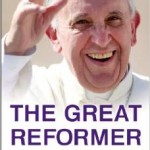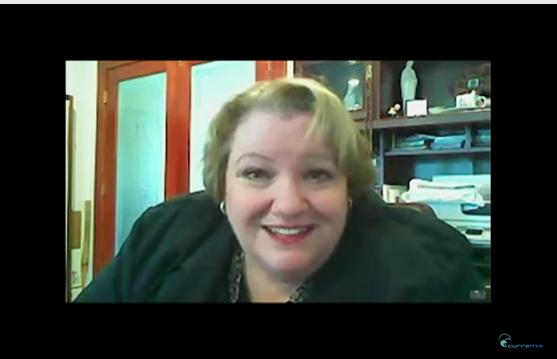The weekend was busy and I was offline for most of it, so I came late to Mary DeTurris Poust’s most excellent rant on the state of homilies and parish liturgies in general but when I read it, I cheered. I completely understood where she was coming from, because so often I’ve gone to mass half-dragging my feet, dreading the sort of (can I say this?) half-assed manner in which so many parishes serve it. And I don’t mean “serve it” as entertainment for the rest of us but serve as in service: as in an act of vertical worship to God and horizontal openness to the community.
Mary wrote:
It wasn’t that the priest was preaching heresy, which also isn’t unheard of in my church-going experience, unfortunately, or that any one thing outraged me to the point where I felt I just couldn’t remain. It was the overwhelming, long-building, near-constant feeling that my Church really doesn’t care enough to try to feed me spiritually. . .Quite frankly, these parishes don’t deserve any of us.
Oh, lady, you are so singing my song! Recently after a 25 minute homily that went nowhere, I ranted at my husband, “could he not see that after the first ten minutes he’d lost us? That we were sitting their glassy-eyed and no-longer present to him or the mass; could he not see people with their arms folded as though they were defending themselves or just determinedly riding out that mediocrity until he finally finished droning? We deserve better!”
My husband finally asked me if I hate the liturgy and I began to cry. “No! I love the liturgy!” I said. “I just hate how poorly we do it!”
In Strange Gods, I’ve described the unusual Sunday when a younger priest — a rare ‘always pretty good’ homilist — concluded a humdinger of as sermon on John the Baptist. It was so excellently built, so instructive, so satisfying, that when he finished and turned back to ascend the altar, the entire congregation broke out into spontaneous, vigorous applause. You could tell from his body language that he was embarrassed by it.
I’m no lover of excessive applause at mass — and neither was this priest, who could often be cranky — but this was something different. The tribute welled up from us like an unstoppable, natural geyser; I think it was because we were so grateful for real instruction, real thought-provoking and challenging stuff coming from a priest, instead of the usual “special people, special mass, special church” droning. A few months later, while I was putting together a retreat, I sought out a copy of his remarks and was surprised to learn that the whole homily had been spontaneous.
“I learned a long time ago,” he said, “to just get out of the Holy Spirit’s way.”
Maybe another way to say that is “drop the plans, step into the path of the Holy Spirit, unencumbered, and let ourselves be used.”
Perhaps the problem with our liturgies is that no one is praying about them beforehand, and if that’s the case, we are all a little culpable for the mediocrity. Our music ministers rush in and set up spare minutes before mass, chatting together as they do it; our priests amble in just in time for mass, vest up and charge into it. Often its clear that our readers are scanning the Lectionary for the first time, just before the processional begins. Very few participants at mass spend much time praying beforehand. Not the musicians, not the lectors, not the priests. . .and not the people.
I’ve written about going to a Yoga class and finding there the kind of respectful and sacred silence one never finds in a Catholic worship space, before mass:
Outside of it, there was a great deal of socializing and chatting, but once people entered the room, all talking ceased. People moved carefully, so as not to disturb others who…were sitting or kneeling in postures that suggested recollection. This oasis of calm remained until the instructor arrived, and then—silent, still, but for the teacher’s voice—the class began to move through their forms: forty-five to fifty minutes of focus, silence, and shared striving.
We Catholics currently seem incapable of reproducing that sort of serious interior preparation for an hour of shared striving. Instead, the pre-mass chattering can get so bad that one week a vesting priest — actually it was the same cranky fellow who gave the great homily — came out half vested and said, “excuse me! EXCUSE ME! This is not Grand Central Station! Some people might actually be trying to pray before the mass; have a little courtesy.”
Oh, yes, Father got in trouble for that because parishioners complained. How dare the priest tell us to stop yakking and perhaps recollect ourselves a little in prayer and silence before the mass began?
Pope Francis clearly prepares interiorly for his masses, and prays them with great reverence. Perhaps in our parishes, the example of the priest’s preparation matters.
I think Mary makes some excellent points, and today she has posted a follow-up over at her blog — a response to some who figure as long as the Eucharist is available, we shouldn’t get too exercised about the rest of it.
Well, we should care about the totality of the mass. It is not a series of disjointed rituals and moments; it is meant to be one glorious whole of prayer.
Yes, it all needs to be better-served; we need to be better served, but as frustrated as I get by our own droning priests, I do think we all possess a measure of culpability for the kind of masses we get. We all need to be the liturgy, and the church we want to see.
This goes back to the idea of the priest praying over his the weeks’ readings and then trusting the Holy Spirit to do the rest.
We have to trust that if we put a little prep-work into our role at mass, be that from the choir, the lectern or the pew, and settle down enough to give the Holy Spirit room to move, we might be astonished at what happens, not just in the liturgy but in our hearts and minds.
One of the big themes I am taking away from Pope Francis’ interview with Antonio Spadaro is that the pope is urging the church toward trust. He has talked a lot about detaching ourselves from idols, in his pontificate — almost every week, in fact — and in the interview, he seems to suggest that holding on to dogma too dearly can get in the way of the larger work of the Holy Spirit; that when black-and-white hits an area of greyness, we need to be able to trust in something greater than the rules that ground us and instruct us but are not meant to paralyze us, or bind our hearts too tightly. That’s where mercy comes in, and the grounding of mercy is trust:
God accompanies persons, and we must accompany them, starting from their situation. It is necessary to accompany them with mercy. When that happens, the Holy Spirit inspires the priest to say the right thing.
This comes from the “Church as field hospital” portion of the interview, but I think it applies here, too. We are wounded in our liturgy, and Mary De Turris Poust has well-articulated our pain. Some are disagreeing with her; I mostly agree. But I believe I will stop short of the sort of revolution she is calling for — I doubt I will walk out of bad liturgies or withhold our offering, because we have to have a little mercy on our priests, too, who are also wounded. They’ve just endured a horrific decade due to the sexual abuse crisis; often their bishops are inattentive to their needs or assign them to roles for which they are ill-suited, or their seminaries have stumbled in giving them training in practicalities like preaching.
Our priests are short-handed, overstretched, often spiritually undernourished, themselves, and rarely prayed-for. We need to acknowledge that if they fail us, we often fail them, too.
Within the church, outside the church, amid the church, we are all so greatly in need of the field hospital of mercy — of developing a shared mindset of mercy. And a shared experience of recollection. And a shared understanding of the power of prayer, when it is offered with complete trust.
The Holy Spirit is clearly working on something; the Holy Spirit is always working, of course, but, as I said here, ever since Pope Benedict was inspired to resign his papacy, its working seems more obvious, more visible. We see it in Pope Francis and how the world has finally sat up and begun to pay attention, once more, to Peter. We see it in Mary’s righteous rant. Hopefully we will begin to see it in our parishes, and within the movements of our own hearts.
Let us pray. Let us pray a lot. And let us trust. A lot.
UPDATE I:
And, a lovely bit of synergy. Today the pope said: “The path of peace is the only one that builds a better world! But… if you yourselves do not build, no one else will!”
UPDATE II:
WOW. From today’s Office of Readings:
— from St Augustine’s sermon on Pastors
“I shall recall the straying; I shall seek the lost. Whether they wish it or not, I shall do it. And should the brambles of the forests tear at me when I seek them, I shall force myself through all straits; I shall put down all hedges. So far as the God whom I fear grants me the strength, I shall search everywhere. I shall recall the straying; I shall seek after those on the verge of being lost. If you do not want me to suffer, do not stray, do not become lost. It is enough that I lament your straying and loss. No, I fear that in neglecting you, I shall also kill what is strong. Consider the passage that follows: “And what was strong you have destroyed.? Should I neglect the straying and lost, the strong one will also take delight in straying and in being lost.”












